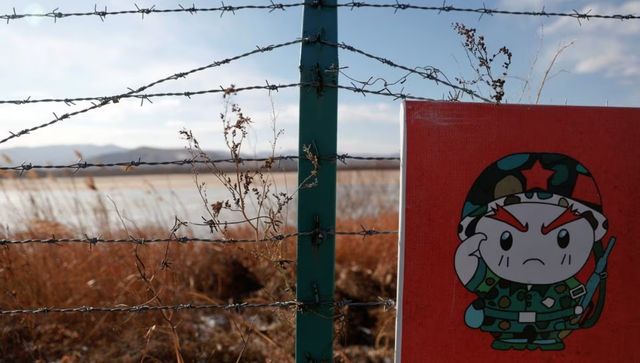The United States and South Korea have issued an implicit caution to China regarding the repatriation of North Korean escapees, pledging to collaborate in addressing human rights concerns in North Korea. This pledge was made as South Korea’s Foreign Minister, Park Jin held a meeting with the US Special Envoy for North Korean Human Rights Issues, Julie Turner in Seoul on Monday. During the meeting, the allies reaffirmed their dedication to improving the human rights situation in North Korea, with particular emphasis on the issue of China repatriating escapees to North Korea, according to media reports. Park conveyed his concerns about the dire conditions faced by the North Korean people, highlighting that the Kim Jong Un regime’s pursuit of nuclear weapons has come at the expense of its citizens’ basic rights. He indirectly criticised China for returning escapees to North Korea, citing recent media reports that suggested “hundreds of North Korean defectors detained in China have been forcibly repatriated to North Korea.” Park emphasised that North Korean defectors should not be forcibly repatriated against their will under any circumstances. Human rights activists had warned that Chinese repatriations of North Korean escapees could increase as North Korea slowly reopens its borders after a prolonged COVID-19 shutdown. Some activist groups believe that the number of North Koreans detained as “illegal immigrants” in China could exceed 2,000. When asked about the alleged repatriations of North Koreans on Thursday, Chinese Foreign Ministry spokesperson Wang Wenbin did not confirm the reports but said Beijing has been “properly” handling North Koreans who illegally entered the country based on “relevant domestic laws, international law and humanitarian principles.” Citing an activist account, the Human Rights Watch in a report on Thursday alleged that China this week used several vehicle convoys to forcibly return more than 500 people who had escaped North Korea. The group said most of the returnees were women and expressed concerns that they were at “grave risk” of being detained in forced labour camps, and potentially facing torture and other violence. With agency inputs.
US, South Korea warn China on North Korean human rights
FP Staff
• October 16, 2023, 11:47:35 IST
Human rights activists had warned that Chinese repatriations of North Korean escapees could increase as North Korea slowly reopens its borders after a prolonged COVID-19 shutdown.
Advertisement
)
End of Article